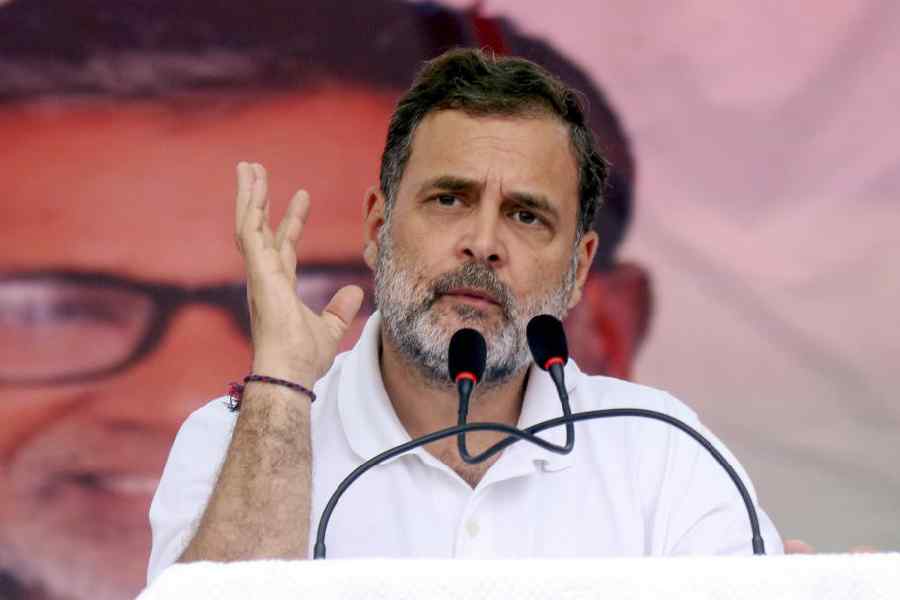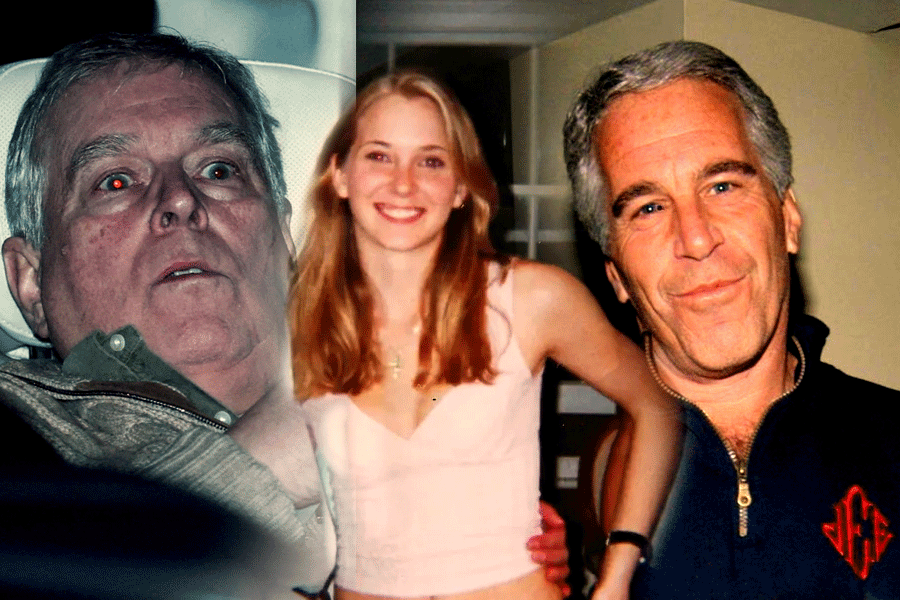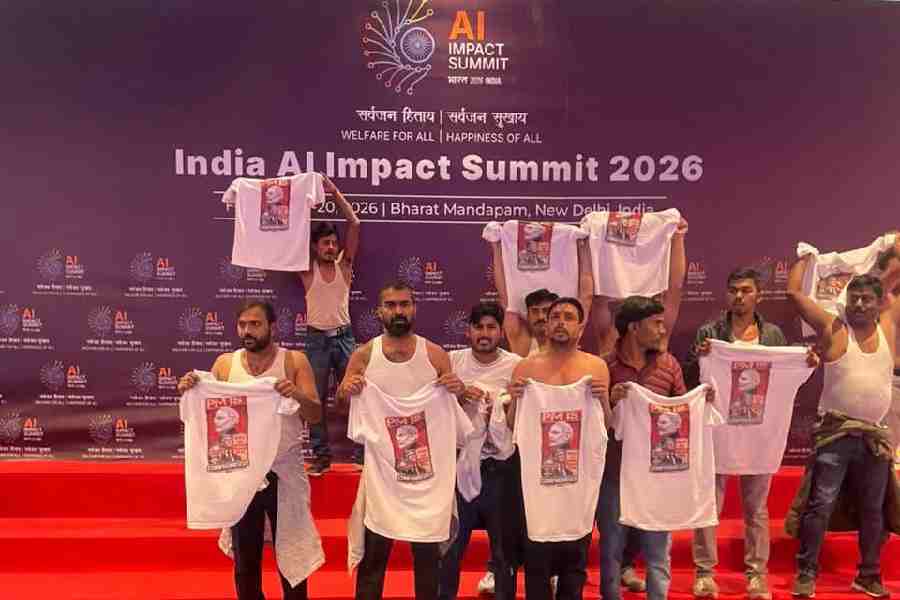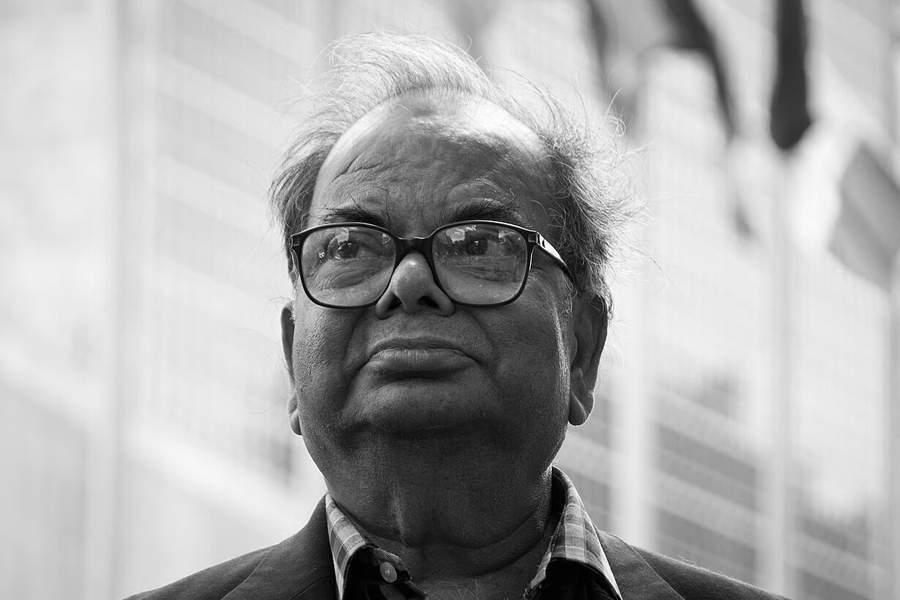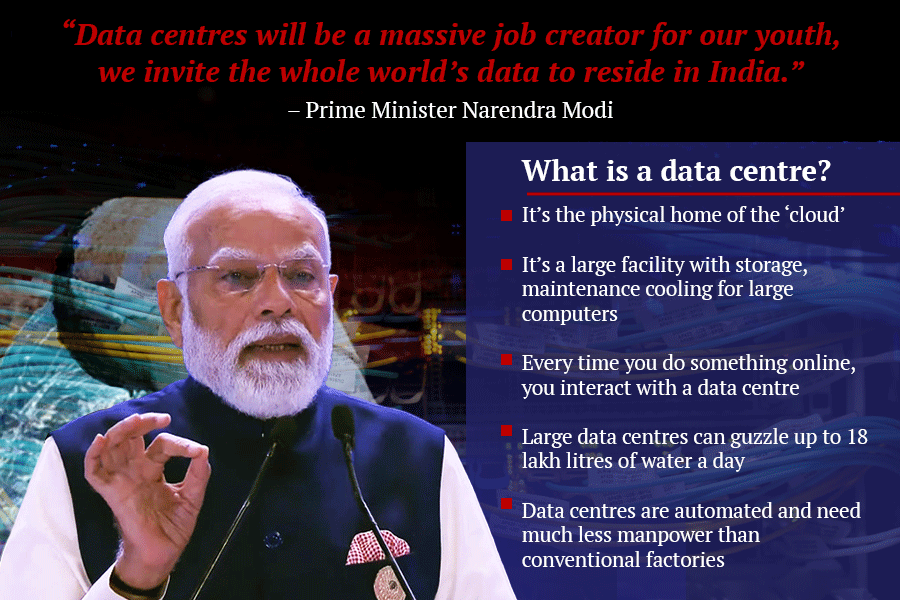 |
Verghese Kurien believed in creating his own ambience. No letters or telephone messages in advance, flowers would arrive at your doorstep in the early morning to announce his presence in the city; you would wait confidently for him to turn up at the end of the day’s chores; the session that would ensue would stretch late into the night, sparkling with argument, humour, banter and outspokenness. Now he is gone. Advancing age evolves its own mechanism to absorb the shock of harsh realizations such as this: ah, well, there had been no encounters with him for the past few years, there would be no further encounters, period.
Kurien loved the epithet that stuck to him, the nation’s dudhwala. Come to think of it, he could have filled the role, equally capably, of a haughty corporate boss or, as easily, that of a blustering, crowd-pulling trade union leader. This born-to-be innovative man could have even been a rollickingly successful film director or, for that matter, an army general. To organize, to build or to put disparate things together was his particular forte. What he actually became was an accidental detail. Had he chosen to apply himself, he could have emerged as an all-conquering ruling politician. Verghese Kurien, an intensely moral man, chose with a moral purpose in mind. His morality in turn was governed, overwhelmingly, by his sense of patriotism.
In that broadcast on the midnight of August 14-15, 1947, Jawaharlal Nehru was perhaps a bit carried away while soliloquizing: even as the rest of the world slept, India was embarking on a tryst with history. Even if only a handful of youngsters took Nehru’s evocation at its face value, Kurien was one amongst them. An executive trainee at Jamshedpur with the Tatas, he had just been offered a government scholarship for higher studies overseas. It would have been natural for him to opt for steel technology or some thing similar for further studies in the United States of America, but, free will at work, Kurien chose refrigeration engineering. It would have been scarcely surprising if, returning home, he had stayed on at Jamshedpur; he could have looked forward to moving rapidly up the corporate hierarchy: his uncle was John Mathai, then a director of the Tatas and soon to be the country’s finance minister.
Instead, Kurien took an extraordinary decision; it was his way of joining India’s tryst with history. A chance encounter with a young Patel — of sturdy, impeccable patidar background from Anand, Gujarat — had set him thinking. The study of cooling engineering had filled him with plenty of insight on how to preserve milk over a length of time. Why not use that knowledge in the country’s cause? His Patel friend had casually mentioned his father’s venture to start a milk producers’ cooperative society at Anand. Whatever other blemishes might be laid at the door of Lord Curzon’s viceregal tenure in the opening decade of the 20th century, it had at least bequeathed the country one gift full of rich possibilities: Curzon introduced a statute which aimed to spread the cooperative movement across the empire. The Bombay Presidency’s record of performance in cooperative activities was fair enough. Most of the experiments, though, were with credit cooperative societies. Producers’ cooperatives were few and far between; the Maharashtra sugar cooperatives were still in the embryonic stage.
Kurien proceeded to Anand and had a long session with the middle-aged, kind-hearted patidar father of his friend. Judged externally, the two were as different as chalk from cheese. But they were keen to learn from each other and appreciated each other’s point of view. A grim phase of interaction and exchange of ideas followed, which also involved hours of learning by doing. Cattle, the patidars knew, yielded milk that was saleable as a nourishing liquid. But they had to be persuaded to believe that milk could be preserved for long periods, and preserved in bulk, thereby vastly enlarging the prospect of it being sold not just as liquid nourishment, but as dairy products in various forms, and, again, not just in the immediate neighbourhood and within the next 24 hours or thereabouts. Preservation in bulk however entailed collection in bulk. This was where cooperatives entered the picture. Milk from your own cattle was just piffle to run economically a refrigerating plant; therefore invite your neighbours to join the cooperative you and some of your close friends have sponsored; the cooperative would now have to don the role of purchasing agent; in due course, invite all the cattle farmers in the village to join the cooperative: the milk producers would simultaneously be milk purchasers, each seller of milk receiving hard cash at the end of the day from the purchasing agent, which was again the cooperative of which each seller of milk happened to be a shareholder. That was not all. The cooperative would not be only a distant, aloof seller-cum-purchaser of milk; it would engage veterinarians and other experts to dispense advice on how to take care of the animals and what animal husbandry practices to follow to raise milk productivity. It was a long day’s journey into the night, but, at the end of it, Kurien could convince each and all that the key to success in cooperative ventures was integrity, understanding the points of view of one another and ruthless suppression of the instinct for bossism. Once the little fellow discovered that the cooperative society he had joined treated him on equal terms with the village hoity-toity, he took very little time to get involved in the cause, he began feeling he belonged, he was the society. He, besides, was a co-owner of the big plant which preserved the milk as well as of the several dairy producing units which converted milk into butter, cheese, chocolates, misti doi, puranpoli, et al. He was also one of the owning angels of the marketing unit of the cooperative society; the size of the society’s various dairy outputs had reached a level where it could set terms to the most formidable purchasing corporate bodies.
That, in brief, is the story of Amul, the Anand Cooperative Milk Union Limited, a story of grit and perseverance, straddling the middle decades of the last century. True, it is not a one-man story; it is equally true, though that, leave out Verghese Kurien, there would be no story. Three elements were at work to render the miracle of Amul possible; these elements defined Kurien too: commonsense, courage to be brutally blunt and a Malayali wit which, despite its severity, still breathed a charm capable of washing away the hurt caused by Kurien’s bluntness of expression.
Once he won Anand, the rest of Gujarat was easy take, Amul and the Gujarat Co-operative Milk Marketing Federation soon became indistinguishable. Amul grew and grew, became rich and richer, the prosperity was shared by thousands of its members. Several points got established: cooperation works if it is allowed to work; a near-arid environment is no hindrance, animal husbandry, including scientific breeding, can do wonders for milk productivity; even the humblest farmer can be a factory owner. The sprawling Amul factory sites at Anand consist of huge plants with arrays of cooling and refrigeration units manufacturing this or that dairy product, research laboratories, animal husbandry and agronomy divisions, the ever busy public relations units. Everything in apple-pie order, an aura of quiet, efficiency and discipline, the whole lot owned by thousands of peasantry, a beautiful dream come true, the fulfilment of Kurien’s personal pledge to the nation.
It was finally the helmsmanship of the National Dairy Development Board. Kurien had at his disposal surplus milk gifted by the United Nations, which he used as bait to entice other states into accepting the Amul concept. The response was mixed. Cooperation as an acceptable functional premise cannot be thrust from above, nor can it be the outcome of a bargaining counter. In a number of states, the Mother Dairy units Kurien arranged to start through the intermediary of the NDDB got enmeshed in bureaucratic or political wrangles. At a certain point, Kurien all but gave up.
Success made him happy, perhaps a bit proud too, but never insufferable. Accolades piled up during the day in the concourse outside. As the evening’s shadow fell, Kurien would withdraw to the tranquillity of his middle-class Malayali household in the company of wife and daughter. In spite of more than half a century in Anand, his Gujarati remained rudimentary. No matter, his heart knew how to communicate, he could get along with his rugged Hindi and the sharpness of his wit. No greater hero ever belonged to Anand. A milling crowd of visitors would be always there, many from overseas, some of whom Kurien would, with flourish, install in the Kosygin Room of Amul’s guest house, to pay homage, as it were, to the heyday of the non-aligned movement India once provided the leadership of; he was perhaps the last of the Nehruvians.
Not that there were no occasional irritations. Gandhi’s Gujarat turned out to be fertile ground for religious fundamentalism. Kurien would now and then face turbulence because of Amul’s principled stand on the issue of cow slaughter. It was far nobler, he would tell the holy-cow rabble, to eliminate cattle in a selective manner than to starve them and otherwise treat them inhumanely for days on end. He was determined to expose the crass hypocrisy of certain types of people. There was that episode when one rabid religious leader invaded Kurien’s citadel at Anand to campaign against cow slaughter. Kurien was the most gracious of hosts, took the guruji round the different units of the Amul works and, getting to know of the religious leader’s fondness for cheese, presented him with one huge carton of the best cheese Anand was producing at the moment. The guruji was duly appreciative. His pleasure was, however, short-lived: in a casual aside, Kurien let drop the information that the excellence of the cheese the guruji had just been presented with was on account of the use of a fluid extracted from the seventh — or was it the ninth — intestine of calves.
Kurien believed in India, perhaps one of the last of the friends one could debate the issue with. He too is now gone: no more flowers at the door in the early morning.


